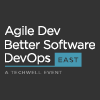 |
Financing Agile Delivery with Forecasts
Slideshow
Your team's been trained to deliver new features in a short time frame. You're estimating your work using abstractions like story points, and the predictability and quality of delivery have clearly improved. However, you still get asked every December to estimate year-long initiatives for annual budgeting. How agile can an organization be when the finance department is still thinking about large-batch projects with fixed cost, scope, and time? Robert Pieper will talk about how to mitigate financial risk and improve return on investment by working in smaller batches. Using financial forecasting in the project management office, we can solve the problem of large-batch, date-driven projects that are prone to missing expectations. He'll tell you how to help your finance departments and PMOs understand what projects to fund and which to avoid, without the big plans and committed dates.
|
Robert Pieper
|
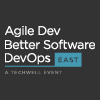 |
Coaching Around Resistance by Using Humble Inquiry
Slideshow
When coaches encounter resistance to agile transformations, we often treat it as a phenomenon to be overcome, confronted, or combated. But resistance is a natural reaction to change, and that reaction can't be alleviated by violent opposition. Rather than meeting resistance head-on, the clever coach will work around it by helping people recognize and resolve the negative emotions that drive it. Once those negative emotions are resolved, people are more likely to let down their guard and embrace change. In this interactive session, you will learn to use a method known as humble inquiry to help people uncover the emotional roots of their resistance so that they can resolve their reluctance to embrace agile transformation. You'll identify common resistance behaviors, then practice by engaging in humble inquiry. You will learn ways to use humble inquiry to build trust and rapport in your agile team.
|
Becky Hartman
|
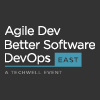 |
Creating Chaos: Engineering for the Unexpected
Slideshow
Every day we deal with complexity in our systems and multiple layers of dependencies. This complexity makes it difficult to predict when one service or dependency might go rogue for a specific circumstance during a delivery workflow. That's where chaos engineering comes in. Chaos engineering creates these "random" scenarios on purpose and builds resiliency into a system while increasing the velocity at which value is delivered to consumers. Shahzad Zafar will discuss his company's journey into chaos engineering, the principles behind it, how to plan for introducing chaos, and why a culture of DevOps is essential for it to succeed. Learn where chaos experiments should be run, how to use business metrics to evaluate results, the best way to permeate results to all of your teams, and how to scale chaos engineering across a larger organization.
|
Shahzad Zafar
|
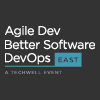 |
What’s Really Going On with Your Team? An Observational Skills Workshop
Slideshow
When it comes to our day-to-day work interactions, there are many factors that pass us by simply because we’re not used to paying attention to them. The best way to become more observant is through deliberate practice, so join Julie Wyman for a brief introduction to themes and different aspects of interactions to start observing, followed by small group exercises to practice observing and to help understand what it feels like to be observed. The exercises will be followed by a debrief and full group discussion about how to observe thoughtfully and share feedback in a neutral, nonjudgmental way. You will leave with an understanding of the critical importance of being able to observe interactions at the individual, team, and organizational levels, and with ideas for how to observe using multiple senses. You'll go home with your coaching and support skills more aligned to your team’s full situation and needs.
|
Julie Wyman
|
 |
Troubleshooting and Understanding Modern Systems: Tools Testers Need
Slideshow
Successful agile testers collaborate with programmers as code is written, isolating problems, troubleshooting defects, and debugging code all along the way to getting the product to done. But modern systems are scaling beyond what traditional teams are able to understand using familiar tools.
|
Chris Blain
|
 |
Use BDD and Product Analytics to Change Your Vision of Quality
Slideshow
DevOps teams struggle to ensure quality in multiple daily deployments. Traditional testing approaches have often failed in this context, but there are exciting new ways to test. Laurent Py and Vincent Prêtre will explain how, at Hiptest, DevOps teams combine behavior-driven development...
|
Laurent Py
|
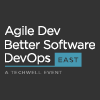 |
Empathy-Driven Development
Slideshow
Empathy is a technical skill. Don’t worry; you read that correctly. While empathy is often cited as a critical “soft skill,” it doesn’t stop there. Empathy is also an incredibly technical topic that is more accessible to analytical engineers—and more vital to building software—than you might think. Andrea Goulet, a noted expert on communication in the software industry, will debunk several myths around empathy, including that empathy is just a feeling, that technical folks can’t access empathy, and that empathy is just a high-level, touchy-feely fad. Andrea will demonstrate how empathy is a crucial skill for all developers of software, and she will give you practical and immediately actionable advice for making empathy a central focus of your daily software development communication practices. She'll also explore the place for empathy while you’re coding and testing.
|
Andrea Goulet
|
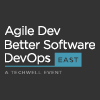 |
Leadership Journeys Start from Within
Slideshow
Becoming an amazing leader means achieving high-performing results. However, this journey of growth and learning has plenty of ups and downs, twists turns, and results and surprises. After years of leadership coaching and practice, Tricia Broderick has noticed several key patterns that have prevented people from taking the next step toward growing their leadership skills. Some of the common questions are, "What if we risk failure?" "Why won't my team step up?" and “Am I still adding value?" Tricia says that to achieve high-performing teams, leaders must challenge these patterns through learning, reflection, and discovery. She also asserts that this challenge starts from within each one of us. Too often we focus on what the team is or is not doing, when instead we should start with what we are doing to influence the team dynamic.
|
Tricia Broderick
|
 |
Building a Skilled Testing Practice In an Innovative Digital Agency
Slideshow
Everybody wants to have their projects tested so that they can deliver top-notch products to their clients. But with multiple projects all running in parallel, all with tight deadlines and all needing testing, simply allocating a tester on a project for some time isn’t going to give you quality. This, in turn, can sometimes make our stakeholders question the value of testing. Join Nimesh Patel as he shares his experience in building a test practice and team from the ground up into valued, credible members of a project, in a digital agency where the focus is often on delivering multiple fast-paced projects in parallel. He shares the skills, approaches, and methods that are valuable when engaging with project stakeholders and managers to enable them to make informed project decisions.
|
Nimesh Patel
|
 |
Automate Your Application Test Deployments with Docker
Slideshow
In a busy world, testing teams are asked to adopt new approaches to increase speed and flexibility of change. What methods and tools can help? Artem Golubev has seen many testing teams being told to use Docker. But for testers, this brings confusion. What it Docker and why is Docker useful to testers? How can Docker be used to increase confidence in our releases? To help you answer those questions, Artem shares his experience using this popular tool and approach. Starting with terminology Artem shares what is meant by Dockerfile, Docker Image, Docker Container, Compose, Kubernetes, and then explains the advantages and limitations of Docker. He shows how to build a Docker-based deployment in this session and gives Hands-on help. He shows how to add Docker to your own current project on your own machine and how-to setup Kubernetes on Google Compute Cloud.
|
Artem Golubev
|

